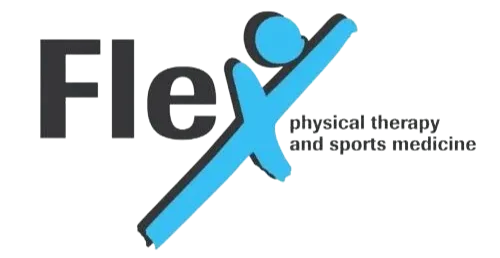
This last Friday, I was covering the sideline for the Underwood football team in Iowa. I’ve been doing this for a long time now; almost 24 years with other schools as well. I take care of injuries that happen during the game along with pregame taping. I really enjoy being on the sideline and helping the teams out any way I can.
When working a game, one of the things you have to do is be vigilant. I have to keep track of each player and make sure no one’s getting hurt. A lot of times players don’t tell you when they’re hurt because they don’t want to be pulled out of a game. They want to keep going. I really have to watch to see if any player might be walking/running with a limp or just not moving right. This requires me to think ahead of the game.
Be Proactive vs. Reactive
The fact that I always try to anticipate what might happen and be ready for anything is really important. You know, as the old saying goes, prepare for the worst and expect the best. What this means is I’m being proactive and not reactive.
As I was working in the game the other night, I thought about this applies to daily life. Let’s face it, things today are coming at incredibly fast and it’s really easy for us to lose track. Before you know it, things in your life are just getting out of control. When you have that happen, you can just feel your stress levels starting to rise. You can feel the frustration. It’s kind of like your fuse just gets really short and things start to set you off. When this happens, you’re actually being reactive instead of proactive.
When you plan ahead and anticipate problems before they happen you can put together a really good action plan. You can reduce your worry and stress tremendously. This is going to help you be more successful in handling issues or problems when they occur. When you start becoming proactive, you keep yourself from getting backed up into a corner. We all know when you get yourself backed up into a corner it creates more stress to an already stressful situation. I just wanted to throw that out there and encourage you to work on being proactive and not reactive in your life. I guarantee it’s going to help you enjoy your journey in life so much more.
Be Proactive About Your Psoas
Now with that being said, let’s get proactive about your psoas. Did you know your psoas is directly linked to your energy levels and emotions?
This may seem new to you, but your psoas is more than just a mechanical muscle that flexes the hip and stabilizes the spine. It also grounds us to our surroundings. Think of it like a grounding wire in a circuit. When your spine is open and grounded, it can become alive and work like it’s supposed to. Your emotions are connected to the psoas through the connective tissue and nerves surrounding that area. When you’re stressed and emotions become heightened, (fear, anger, or frustration), they will travel through the nerves in the psoas, into the spinal cord, and up to the brain. When this happens, your brain starts to interpret those signals.
The Psoas and Your Brain
The psoas basically acts as a messenger from your midsection to your brain. When your psoas is healthy and free, the messages to the brain are clear. If your psoas is really tight and fired up, the messages are not as clear. This can really increase your emotional discomfort in the process of the delivery from your spinal cord to the brain. If your psoas is relaxed, you’re going to feel more grounded, relaxed, flexible, and have better mobility with less pain. But if your psoas is tight it will cause back and hip pain along with knee and ankle problems. In addition, the psoas can cause issues with fatigue.
That happens because the upper portion of the psoas, where it connects into the upper lumbar and lower thoracic vertebrae, actually lays right next to your diaphragm. If that psoas is tight, it will increase your fatigue. It works this way because it connects to the diaphragm through its connective tissue. This connection allows the psoas to influence your breathing. The rate of your breathing also affects your ability to feel fear and anxiety. This has been well documented. The property diaphragmatic breathing can reduce pain, anxiety, stress while shutting down the sympathetic nervous system.
Do you remember that fight or flight response? That is generated by your sympathetic nervous system. If your psoas is tight and restrictive, it can influence your diaphragm that can shorten the breathing which causes an increase in your breathing rate. You don’t get the good diaphragmatic breathing. This causes you to breathe through the chest instead of the stomach. You get a poor exchange of air, less oxygen, and start to become more fatigued.
Breathing is Key for Emotional Calmness Imbalance

Breathing exercises have shown to do this. They will shut down the sympathetic nervous system. Activate the parasympathetic nervous system (your calming center). A tight psoas is going to stay tight and contracted up unless it is treated and released. When you have open hips and a strong lower back you can play easier, be more creative, calmer and better equipped to handle the stress. As your emotions start to show up during the day, if you’re psoas is healthy, these emotions can easily be transmitted freely and clearly through the psoas to the brain. Released hips will help eliminate any unnecessary fear that you might experience.
Fear and How It Effects Us
Fear is one of those emotions that will stop us in our tracks. It will stop us from experiencing and taking on the unknown. It keeps us from a calm life. Restricts us from being able to thrive and triggers that fight or flight response. Think about this, young kids have little fear. Watch how they play, see how they move so freely. You can learn a lot about them. How they live freely and just don’t have that fear because they haven’t developed it yet. Fear, and your body’s reaction to it, can be reduced by releasing the psoas.
Simply stretching will not release a tight psoas. In fact, if you try to stretch that muscle when it is flared and tightened up, it rarely works.
I’m going to tell you why and what you need to do………..Next time
The take home message I want you to know today is your psoas is extremely important. Not just for the health of your back, but to keep your hips moving freely and keep your emotions in check. It also affects the breathing, which in turn will help to reduce your fatigue. When your psoas is not healthy, it does so much more damage to your body than just causing back pain.
I’d like to end with a quote, like always because I like quotes. This one’s from Florence Nightingale,
“how very little can be done under the spirit of fear.”
That is pretty strong. I believe there’s a lot of truth to that.
If you would like a copy of a free copy of my new eBook, The Five Best Kept Secrets to Fast Back Pain Relief send me an email at Mike@flex-pt.com or shoot us a Facebook message. Just say, “Hey, I’d like the back-pain eBook,” and we will get that set up. There’s a lot of really great information I think will help you guys.
Until next time. Power Your Life and keep moving forward.


